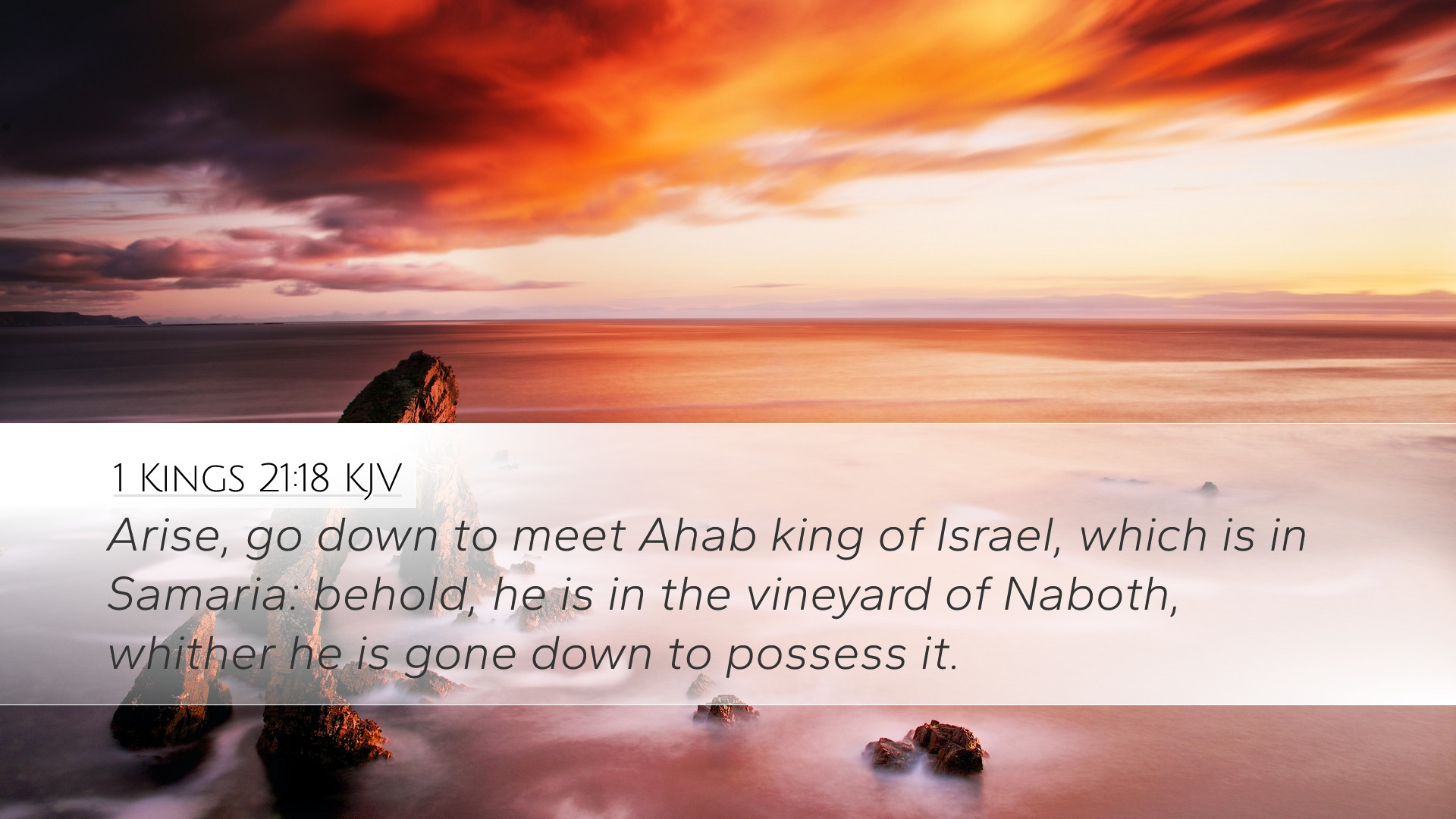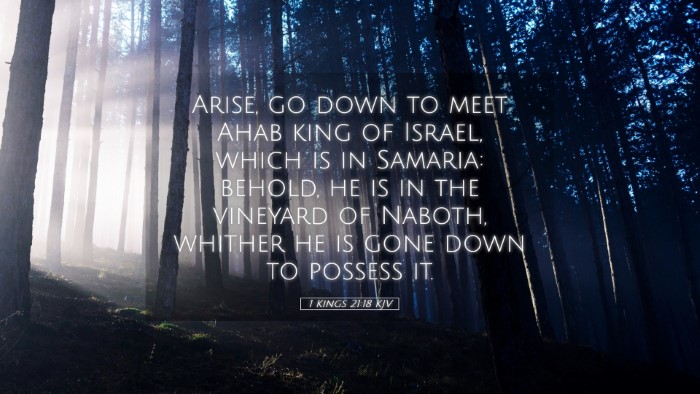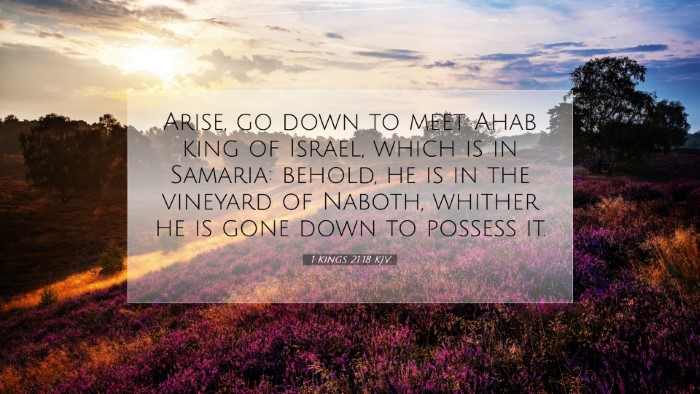Commentary on 1 Kings 21:18
Verse Reference: 1 Kings 21:18 - "Arise, go down to meet Ahab king of Israel, which is in Samaria: behold, he is in the vineyard of Naboth, whither he is gone down to possess it."
Contextual Background
This verse is set within a narrative that involves a tragic episode in the life of King Ahab of Israel and his interaction with Naboth over a vineyard. This account provides critical insights into themes of justice, power, greed, and prophetic confrontation.
Exegesis and Theological Insights
1. The Divine Command
In this passage, God's instruction to Elijah highlights the prophetic role in calling kings and nations to accountability. Matthew Henry emphasizes that this command was not only a directive to confront Ahab but also an act of divine justice. As noted in Henry's commentary, God does not turn a blind eye to the injustices carried out by those in power.
2. The Character of Ahab
Albert Barnes notes that Ahab, being in the vineyard of Naboth, demonstrates a pivotal moment where he is about to exercise unlawful authority as he seeks to grasp what does not belong to him. This moment captures Ahab's character - a reflection of covetousness that ultimately leads to greater sin and societal repercussions.
3. Naboth's Vineyard
The vineyard itself symbolizes innocence and rightful ownership. Adam Clarke elucidates on Naboth's refusal to sell, which was rooted in the inheritance laws of Israel. This refusal illustrates a larger cultural ethos surrounding land ownership and familial heritage, which reflects God's covenant with His people in the Promised Land.
Lessons for Leaders and Believers
- The Responsibility of Leadership: Leaders are called to reflect God's justice and righteousness. Ahab's actions serve as a cautionary tale regarding the moral implications of leadership. Barnes argues that those in power must act with integrity and heed prophetic warnings.
- The Importance of Prophecy: The role of the prophet Elijah in this text illustrates the necessity of prophetic voices in society. Henry emphasizes that prophecies serve to restore justice and prompt repentance, which is essential for any community seeking God's favor.
- Justice and Accountability: The confrontation narrative urges believers to recognize that God observes injustices and will hold both individuals and nations accountable. This is a reminder for scholars and theologians to advocate for justice in their communities, much like Elijah's role in confronting Ahab.
Conclusion
1 Kings 21:18 provides profound lessons on morality, justice, and the responsibilities that come with authority. Through this passage, pastors and theologians are encouraged to reflect on the nature of their leadership roles and the importance of standing against injustice. The inquiry into the motivations of Ahab and the divine call to Elijah is a reminder that God's voice still seeks to prompt change in our hearts and communities.
This verse and its surrounding narrative not only highlight biblical history but also convey timeless truths applicable to contemporary leadership and ethics.


